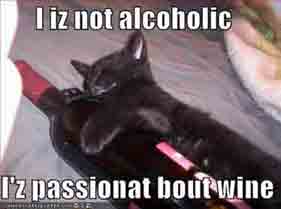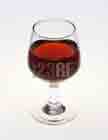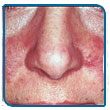|
Alcohol WithdrawalHow to Cut Down Your Alcohol Intakeage-well.org > Stay Well > Alcohol Withdrawal
Drinking Less Alcohol Can Help You Age Well
Table of ContentsThis Page: Other Related Pages
Facts About AlcoholPhoto: Photobucket open source Alcohol is a drug that depresses the brain. Initially drinking might give some relief from anxiety or help us forget our problems, or if we are shy, help us interact better socially. However, drinking too much can have the opposite effect, causing or aggravating depression. Losing one’s inhibitions can also lead to problems. Driving under the influence is one of the number one causes of road accidents and drunken individuals are more likely to be involved in other forms of anti-social or violent behaviour. Drinking can increase desire and enhance enjoyment of sex, but in addition to the hangover, you might wake up regretting your choice of partner or worse still having taken risks that could lead to unwanted pregnancy or a sexually transmitted disease. Drinking can also lead to impotency in men. While drinking initially makes you tolerant and good-humoured in certain individuals it can make people argumentative or even violent. Alcoholism can lead to behaviour that causes marriage breakdowns or loss of friendships. Good versus Bad Dietory Effects
It is now believed that drinking moderately can help protect against heart disease, as it reduces bad cholesterol and raises the good cholesterol levels. It is usually recommended to drink a glass or red wine with your meal as this also contains antioxidants. However, you should not drink more than two glasses per day. If you are watching your weight, it is also a good idea to cut down on your intake, as all these beverages are very fattening, containing loads of calories and virtually no nutrients. Cutting Down
If you are cutting down on your intake in order to age well, remember than drinking has a negative impact on your complexion, often leading to Rosaica. It is also very calorforific and, if you are trying to lose weight, it can sabotage your plans to do so. Try and identify what triggers your desire to drink and avoid or learn how to deal with these in an alternative manner. Set yourself a limit each week and stick to it. Don't be shy about saying no and asking for an alternative. Try spritzers - if you are offered white wine, dilute it with sparkling water for a refreshing change. Tell your partner or your family and friends that you have decided to cut down and ask for their help. If you are at a party sip your drink and watch if people are topping you up as it is very easy to drink more than you intended if the host is being generous with the wine. Ask for water and drink this for your thirst. Some tips on how to cut down on your alcohol intake Alcohol Dependence
As with other types of substance abuse, you can become psychologically and physically dependent. Alcoholism is a serious health problem, which can wreak havock with the body. Drinking to access can cause alcohol poisoning, high blood pressure or heart problems. It could eventually lead to liver problems such as cirrhosis of the liver and many difference forms of cancer in the digestive system. If you find that you are becoming dependent, it is very important to seek medical help, as this is a problem that it is difficult to control on your own. Although it is imperative to have the will to stop, the help of a therepist and support from family and friends is essential for success.
Alcohol WithdrawalIf you have been drinking a lot of alcohol and decide to stop abruptly, you will probably experience symptoms within five to ten hours after your last drink that will worsen in two to six days and might last several weeks. Common symptoms sweating, clammy skin, fatigue, not being able to think clearly, loss of appetite, nausea, vomiting, insomnia, night mares, mood swings, shaking nervousness, irritability and may develop into anxiety or depression. A severe form of alcohol withdrawal called delirium tremens can cause agitation, severe confusion, fever or seizures. If consulted, a health care professional will look for signs such as abnormal eye movements and heart rhythms, dehydration and rapid breathing and may decide to hospitalize you for observation if you are experiencing moderate to severe symptoms. You will be watched closely for hallucinations and other signs of delirium tremens. Treatment may include monitoring of blood pressure, body temperature, heart rate, and blood levels, intravenous injections of fluids and/or medication and sedative drugs to help you cope with the worst withdrawal symptoms. If you have mild-to-moderate alcohol withdrawal symptoms, you can often be treated as an outpatient but will still need support during the process and you will still need regular blood tests. You may be offered sedative drugs to help cope with the symptoms and counseling and testing for medical problems linked to alcohol use. PrognosisLike many addictions, recovering from alcoholism or a less serious dependence on alcohol is a lifelong struggle, requiring a life-long commitment. Many people who go through alcohol withdrawal make a full recovery, however the effects of drinking and many of the symptoms associated with the withdrawal could last for some time. Total life-long abstinence is the best option for those who have gone through withdrawal successfully and support groups may help keep you on your teetotaler regime. However it is worth remembering some of the basic facts about alcohol, i.e. that people who drink excessively may develop serious problems like heart conditions and alcoholic-liver-disease and death from alcohol poisoning may be a possibility, especially if delirium tremens occurs. age-well.org > Stay Well > Alcohol Withdrawal Top of Cut Down on Alcohol and Alcohol Withdrawal Alcoholic Liver Disease - One of the dangers of drinking heavily Some Tips to Help You to Stop Drinking Heavily Return from Alcohol to age-well.org |
Translate this Page
Search this Site
| search engine by freefind | advanced |
Follow Us On Twitter

Develop Smart Habits
|
Lose Extra Weight
|
|
Lose Bellyfat
|
|
Quit Smoking
|
|
Reduce Alcohol
|
|
Get Enough Sleep
|
|
Eat Healthily
|
|
Cut Down on Salt
|
|
Cut down on sugar
|
|
Avoid Transfats
|
|
Follow the DASH Diet
|
|
Drink Plenty of Water
|
|
Exercise Regularly
|
|
Manage Stress
|
|
Get Your 5 a Day
|
| Eat a Healthy Breakfast
|
|
Get Enough Calcium
|
|
Think Positive
|
Prevent Age-Related Diseases
|
Alcoholic Liver
|
|
Alzheimers Disease
|
|
Arterioslerosis
|
|
Age-Related Cancer
|
|
Cataracts
|
|
Cholesterol
|
|
Depression
|
|
Diabetes
|
|
Dementia
|
|
Dry Eye
|
|
Enlarged Prostate
|
|
Fibromyalgia
|
|
Glaucoma
|
|
Hair Loss
|
| Herniated Diac
|
|
High Blood Pressure
|
|
Incontinence
|
|
Lower Back Pain
|
|
Macular Degeneration
|
|
Menopause
|
|
Osteoarthritis
|
Osteoporosis
|
|
Parkinson's Disease
|
|
Peri-Menopause
|
|
Stroke
|
|
Shingles
|
|
Swineflu
|






